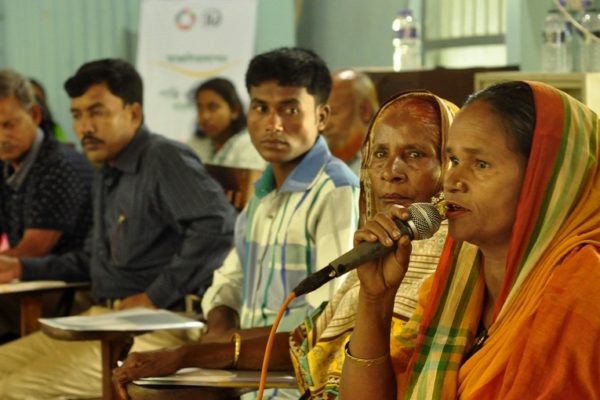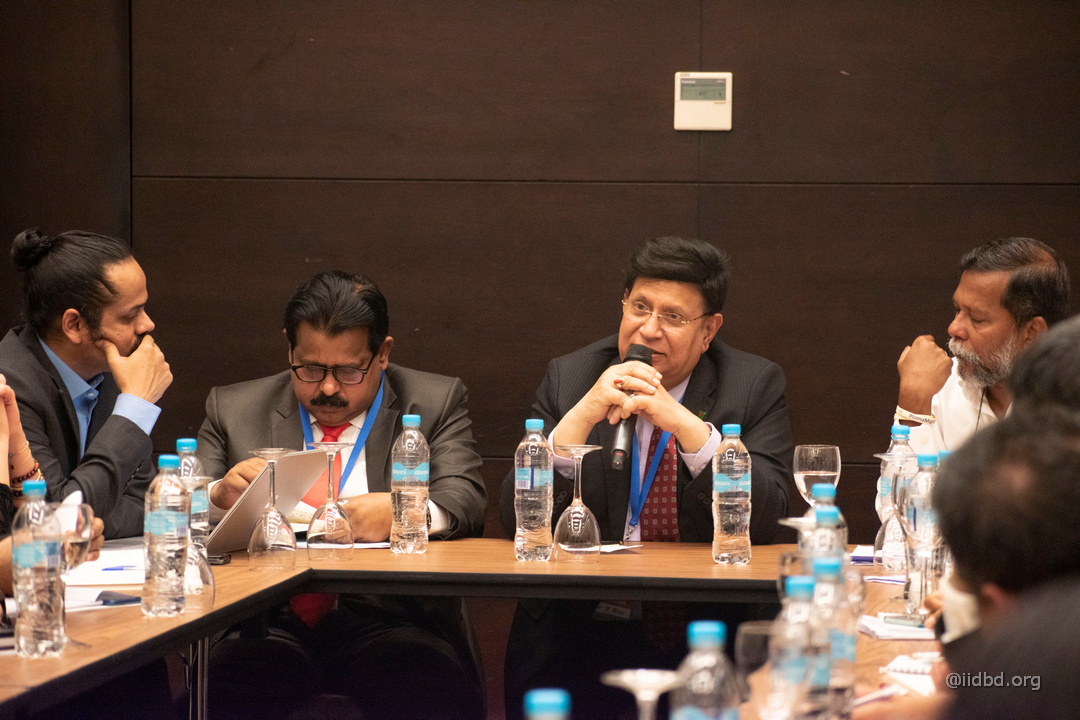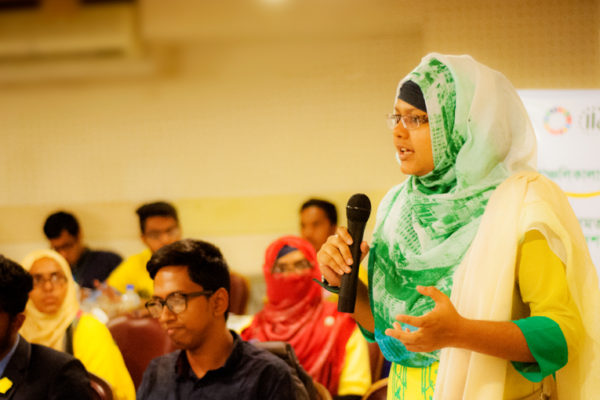An engaging discussion at Barisal Policy Forum at the 12th of January, 2018 was on three issues: violence against women, faith based violence and youth on election. The event was specifically centered on youth and tried to reflect the current ideas and thoughts today’s youth are having on these imperative themes.
The forum started with the discussion on the current state of violence on women in Bangladesh. The discussion revealed many thoughts youth have on this issue.
Participants pointed that discrimination starts from family and leads to larger societal discrimination. Many participants said that discrimination starting from the family is normalized from childhood and most people grow up being blind to discrimination because it has been so pervasive and deeply rooted.
Interestingly, young male took a gender-blind approach to development at the start of the discussion. For example, one participant suggested that society must stop talking about discrimination as a whole for a few generations which will lead to future generations not discriminating, on few male participants opposing the quota system (e.g. reserved bus seats) for women suggesting it aggravates gender discrimination. But as the discussion moved forward, the participant understood that reserved bus seats for women is needed as women face a lot of harassment while they are in public transports.
Major suggestions from the session focused on Self-defense, training individual self-awareness from childhood and so on. Gender education from family and support is said to be very important. While taking affirmative actions, policy makers are suggested to take race, social status, religion, access to services etc. into consideration.
As the discussion moved to violence in the name of faith, participants pointed out distance from family members is one of the major reason of young people are susceptible to going into violence.
Major cause was identified to be lack of knowledge on scriptures or wrong interpretation of Holy Scriptures. The international politics and media coverage also aggravates the growing intolerance.
Participants agreed to the fact that nowadays more people are intolerant towards other religions, imposing their own values and ideas which show lack of empathy.
The participants came to a conclusion that a strong ideology is very important in this time of crisis. Sound knowledge and awareness is needed as violence against ethnic and religious minority takes places due to fabricated news and violence stems out of patriotism.
Suggestions came to include religious tolerance education in curriculum. Religion should not be used for political interest by politicians. Cultural activism needs to be increased. School should hold counselling for kids and teach unity, tolerance and pluralism.
A special session was focused on upcoming election and youth. The participants agreed that there is no enough young leadership in the country due to the lack of scope for educated people to pursue politics. But they agreed values and education would decrease corruption.
Young politicians do not own enough set of skills to lead. Student leaders do not peruse politics after student life. The underwhelming participation of youth in politics, as they possess a very negative notion of politics perceiving it to be dirty and a place for corrupt individuals, needs to change. There is a gap in leadership that demands to be addressed immediately by young leaders coming forward. Since entry of women in politics is particularly difficult, policy measures need to be in place to ensure women’s participant in the political leadership, as political empowerment of women is the key to a more inclusive society that would reduce gender-based violence.






